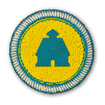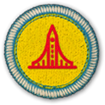
Aflakló
A Good Fisherman
Aflakló is a combination of the words for catch (afli) and claw (kló), a very vivid description of somebody that is really good at catching fish. Good fishermen have always been admired in Iceland. Today they do not only rely on their sixth sense but also highly advanced fishing equipment.
Perhaps we will soon have an Icelandic word for our best developers of advanced marine technology. They have earned it.
Ánægja
Pleasure
Icelanders are continuously ranked as one of the happiest people on the planet. There is no definitive explanation for this sunny disposition, except that it is probably not due to the weather. Perhaps it has something to do with our high rank on other indices that measure quality of life, such topping both the Global Gender Gap Index and the Global Peace Index.

Borg
City
Reykjavík is a small-ish city, but don’t let size deceive you – a steady beat of energy and events keeps the city alive and pulsing with excitement. The city forms the nucleus of Iceland's rich culture and arts scene, and proximity to the sea and surrounding mountains keeps people closely connected to nature. While it’s not a bustling metropolis, Reykjavík is a lively city by all modern standards.

Dvergasmíði
Super craftmanship
In Norse mythology, dwarfs were known as master craftsmen. A piece of jewellery, or a tool built by dwarfs stood out for its delicate and accurate craftmanship, design and ingenuity. Literally "dwarf-made" – Dvergasmíði is still used to describe excellent craftsmanship, a quality that is held in high regard in Iceland.

Svið
Stage
Creativity is an important element for a culture thriving under demanding natural conditions Since Iceland was settled, writing and music have been an integral part of life in the country. This remains true to this day, as creative industries in Iceland employ more than 5% of the work force. Public participation in a creative outlet of some sort is very high, and it is not uncommon to run into thy neighbor, upon a stage, performing with a local band, a church choir or a local theatre group.
Eldhugi
Passionate enthusiast
Eldhugi combines the words ‘fire’ and ‘mind’ to refer to an exceptionally driven and passionate person. Someone whose mind is literally ablaze for a specific idea or topic. In a small-scale economy this can be an important quality to get your ideas of the ground, and out into the world around.

Éljagangur
Snowfall
Perhaps there is no more accurate description of an Icelandic state of mind to be found than the one expressed in the idiom "Öll él styttir upp um síðir" or “All snowfall eventually lets up”. In a country where the weather can be somewhat unpredictable, this is a good thing to keep in mind. Turns out our sunny disposition may be weather related after all.

foreldraorlof
Parental leave
In Iceland, parents have equal rights to a parental leave. Each parent has 3 months to spend at home with a newborn child and the couple receives extra 3 months to divide between themselves as they see fit. It is common for people to make full use of this leave and spend their time with their little darlings.

Gleðigjafi
Bundle of joy
While most commonly used to describe a newborn, Gleðigjafi, the one who gives joy, can refer to anyone, or anything that brings on that emotion. Nothing has brought more collective joy to these shores of late than the Icelandic national football teams, who have repeatedly made the finals for big international competitions.

Heimskautsbaugur
Arctic Circle
Iceland straddles the Arctic Circle, and a large part of our territorial waters lie within the arctic. This makes the effects of climate change very evident in Iceland, where shrinking glaciers, and changing vegetation attest to a rise in temperature. Iceland is one of the eight member states of the Arctic Council, an intergovernmental forum promoting sustainable development and environmental protection in the Arctic and takes this responsibility very seriously. We are actively working towards a sustainable future for the Arctic and supporting the indigineous people of the region.
Iður
Deep inside
"Iður jarðar" refers to what is deep inside the Earth. This is the source of volcanic fire and valuable geothermal energy. Harnessing this natural resource raised living standards dramatically in Iceland in the early 20th century and today more than 90% of all buildings in Iceland are heated with geothermal energy.

Ísbíltúr
Ice cream ride
Icelanders love of ice cream is unmatched. An Icelandic invention called ‘bragðarefur’ is the most popular choice. It combines a regular soft serve with any three kinds of candy or fruit, mixed together. The possibilities are endless. This has become such a standard afternoon delight that we have a specific word that denotes the activity of going out for an ice cream i.e. Ísbíltúr.

Kvennafrídagurinn
The Women's Day Off
On October 24th, 1975, 90% of Icelandic women went on strike, both from paid jobs and housework, to "demonstrate the indispensable work of women for Iceland’s economy and society” and to “protest wage discrepancy and unfair employment practices.” The country was essentially shut down for a day while women gathered at mass demonstrations. This historical event is probably one of many reasons why Iceland has now ranked number 1 in gender equality in international comparative studies for seven years running. The Icelandic Women's Day is now celebrated each year.

Ljósleiðari
Fibre optic cable
Connectivity is all-important for an island in the North Atlantic. Iceland ranks near the top of the list for connectivity worldwide. This fact, coupled with a convenient location and an ideal climate for ambient cooling has encouraged a fast growth of the data center industry in Iceland, especially high-performance computing.

Menntun
Education
‘Menntun’ - the Icelandic word for education, is derived from the same root as the words for being human (mennskur) and for culture (menning). This etymological kinship is no coincidence; education has always been highly valued in Iceland. The level of education in Iceland is very high, and university education is freely available.

Nútími
Modernity
Icelanders took an accelerated approach to modernity, going from a relatively poor insular existence to a robust and well-off society in the span of 100 years or so. Iceland is a meeting place for rich cultural heritage and the latest international trends from both sides of the Atlantic. Industries like fishing and food processing are both based on old traditions and the latest in science and technology. The safe society is closely knit and family friendly but the relatively young and educated population is open-minded and global in outlook. In a country of unspoiled and often harsh natural beauty, a state-of-the-art infrastructure is important.

Opið
Open
Iceland is an open and democratic society in the Nordic mold. Views are generally socially progressive and people are open to each other’s differences. On an international level, Iceland has emphasized the universality of Human Rights and made a point to stand up for the rights of minorities

Pollagalli
Rain clothes
There is a very liberal attitude towards rubber clothing in Iceland. Maybe it has something to do with horizontal rain and high wind speeds. “Puddle Overalls” is a cute nickname for children’s rain clothing. Originally designed for fishermen, these garments are equally at home in the sandbox.

Stutt
short
There are no six degrees of separation in Iceland. The avenues of communication are short. Any two persons are usually not far removed by either relation or acquaintance. Geographically, distances are short as well. You can fly from one end of the island to the other in an hour, and drive across in less than a day. Iceland is also ideally situated. A short 5-hour flight from New York and an even shorter 3-hour flight from London.

Tölva
Computer
Icelandic is spoken by less than half a million people worldwide. It is a continuous challenge to make sure that the language adapts and survives, especially in an increasingly connected world. Part of keeping a language alive is to make sure it is used and to resist the temptation to copy words directly from other languages. Therefore a lot of effort is put into creating new words, or adapting old words, to refer to new inventions in Iceland. The word tölva is a good example, it means computer but is created from the Icelandic words tölur (numbers) and völva (witch). This incorporates what a computer does perfectly.

Umhverfi
Environment
Iceland is famous for unspoiled natural beauty, but life in this country is very dependent on sustainable management of natural resources. Iceland has taken a leading role in developing sustainable fisheries policies, and environmental preservation is a serious topic in the country. Iceland was one of the first countries in the world to develop a fossil free energy sector and is taking a leading role in creating a fossil free transportation system as well.

Útsjónarsemi
Resourcefulness
In a country dependent on limited natural resources, being resourceful is a key to survival. This has ensured an innovative streak in Icelanders, as way to acquire better yields from our resources. Much of our success in pioneering marine products is due to this attitude. Each year we catch fewer fish in order to preserve the species, but we use more of them and the value of the catch goes up. Side products from fishing are for example health products, food supplements, pharmaceuticals and even high fashion products made from fish leather.

Viðskiptalíf
Business
Long before the days of European Free Trade, Nordic Vikings are known to have traveled across Europe to conduct business. Still, Iceland is a member state of the European Economic Agreement, which allows us access to the four freedoms: free movement of goods, capital, services and persons. This agreement is of great value to Icelandic businesses since it removes restrictions within the European market. Iceland is also a member state of Schengen and Icelanders move freely between the Schengen states. Iceland is furthermore one of two European countries to have established a free-trade agreement with China.

Vaxa
Grow
Iceland’s northerly location is a challenge for the island’s flora. Thanks to abundant geothermal energy, we can expand our possibilities by creating a temperate climate in greenhouses and produce both fruits and vegetables. On-shore fish farming in warm water derived from geothermal power plants, and production of valuable proteins in microalgae, are more recent examples.

Ylhýra
Warmly
There is a strong connection between Icelandic language and culture. This symbiotic relationship is maybe best described by how Icelanders routinely use the word Ylhýra to refer to the language. While not easily defined by translation, it is a word that refers to a warm and friendly feeling inside.

Ýmir
Ýmir - Mythological Giant
Ýmir is the original jötunn or giant in the Norse Mythology. Óðinn, the highest of the Norse Gods, and his brothers, killed Ýmir and formed the physical universe from his body. The mythology is well known and taught in schools and is an important part of our cultural heritage. Icelanders adopted Christianity by a peaceful parliamentary decision in the year 1000.

Þing
Parliament
The roots of democracy run deep in Iceland. The Icelandic parliament, Althing (where all things were decided) is the oldest national assembly in the world, founded in Thingvellir in 930 AD. The parliament has met continuously since, with a 45-year hiatus in 19th century. Participation in the democratic process is very high, and electoral participation is among the highest in the world.

Ættfræði
Genealogy
Genealogy is Icelanders favorite pastime. Most people can trace their lineage back a few hundred years, or even back to the settlement of Iceland in the 9th century. Ever the technology lovers, Icelanders can now also look this up online in Íslendingabók (the Book of Icelanders) where all Icelanders are registered. Of course this can be an important precaution when dating but mostly it is used for fun. We also have extensive databases on genetics, biosamples and health records so here the science community has a unique set of tools to investigate a wide range of diseases.

Öld
Century
Iceland celebrated a century of sovereignty in 2018. Much has changed since Iceland acquired sovereignty from Denmark in 1918. Almost half the population lived in turf houses at the time, as wood was a rare commodity. Iceland was largely dependent on imported oil and coal, but now uses local renewable energy resources to meet most of the country's energy needs. Living standards have risen to such an extent that Iceland is ranked as one of the most prosperous countries in the world. It is hence difficult to imagine what life was like less than two lifetimes ago.
The A-Ö of the regions
Want to continue learning? Discover the A-Ö of the seven regions of Iceland below.
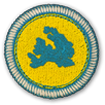

Westfjords
There is something magical about the Westfjords, the region that could arguably be labelled "Iceland's best kept secret". Isolation has preserved the region in a relatively unspoiled wilderness, making it a must-see for any serious explorers.
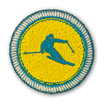

North
It's all about beautiful contrasts in the North, a land where long valleys and peninsulas are interspersed with big mountains, lava fields and smooth hills carved out by powerful rivers. Go big or go home!
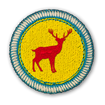

East
If drifting through picturesque fjords from one warm town to the next is your cup of tea, head to the East. It is home to the country's largest forest, lush farmlands and even the mysterious lake monster in Lagarfljot.
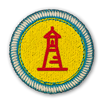

Reykjanes
What's so cool about Reykjanes? Not only is it where most visitors set foot in, a geothermal wonder and the home of the spectacular Blue Lagoon, but also a place where lighthouses outnumber villages.
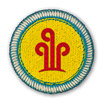

South
If the regions were pop songs, the South would probably be the chart-topping hit, since it is renowned for its beauty and the home of some o f the country's most visited tourist attractions.














